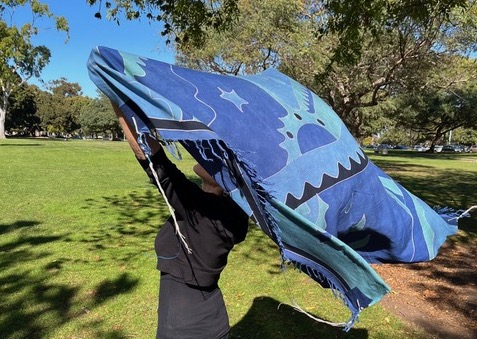The BOUNDLESS ONE told Moses: Speak to the Israelites – tell them to make themselves tzitzit upon the corners of their clothes, throughout their generation. (Numbers 15:37-41)
May the fringed tallisim that we wear today, which once signified free men, and on women now declares both equal stature and multi-hued individuality,
Continue to tie us to the generations of Jews who wore tzitzit before us, to our traditions and to the Jewish community;
Envelop each of us in a protective mantle, head-shrouded and inner-focused, floating in tradition or connected, with shawl to neighbor’s shoulder;
Celebrate passage from childhood to minyan member, non-Jew to tribe.
May the strings and knots of the tzitzit, that once represented commandedness, today represent our choice
to participate,
to perform mitzvot,
to search out ways of expressing Judaism that tie past to present and tradition to knowledge.
This piece was written for the West End Synagogue on-going Innovative Liturgy Project. Original pieces and reconstructed prayers have been written for the High Holy Days, Shabbat, and also for more specific projects such as “psalms”, “peace” and the “middah of the month”.










